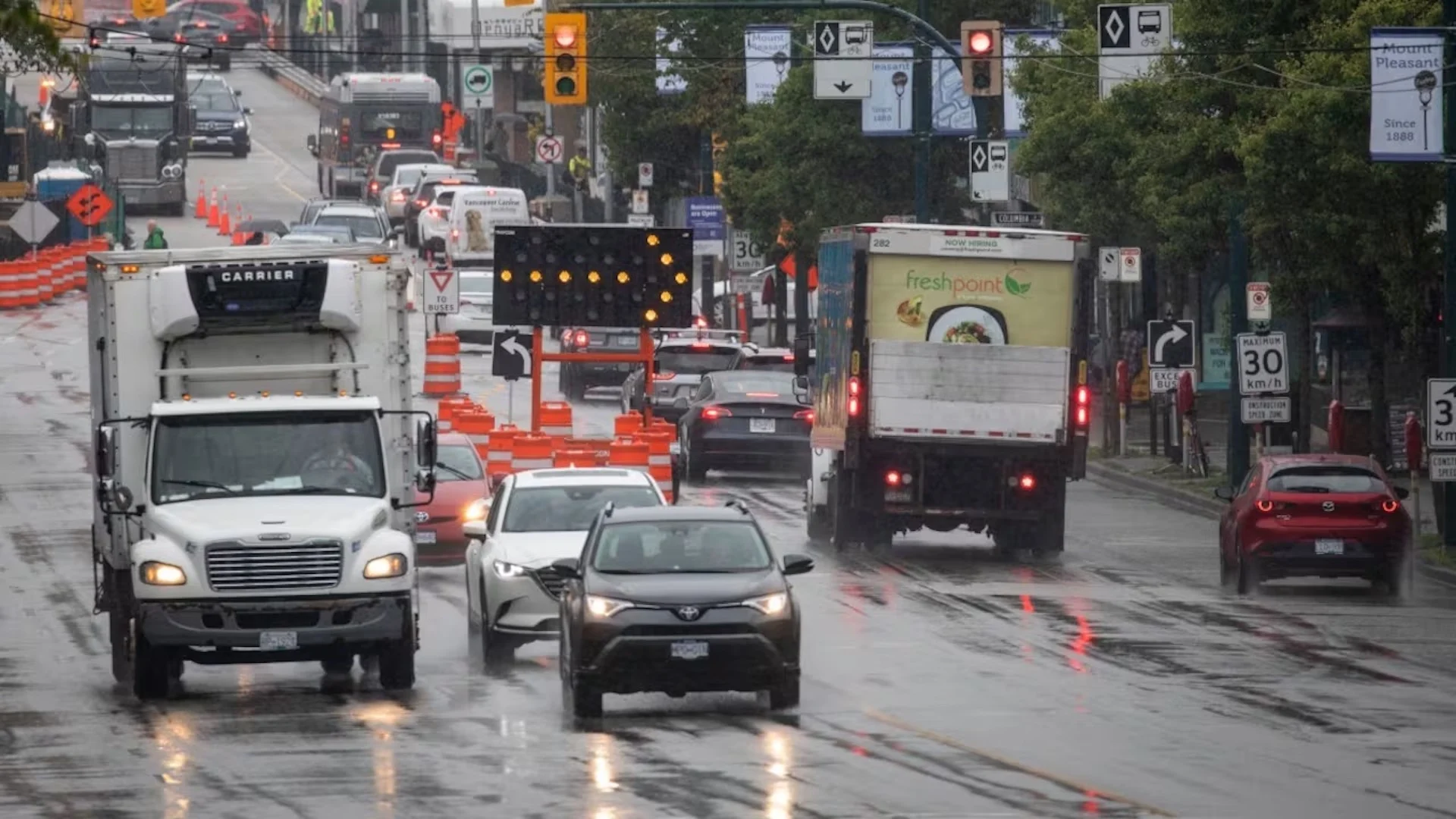
Metro Vancouver 'unlikely' to meet 2030 emissions target, district staff say
The Metro Vancouver Regional District is "unlikely" to meet its target to reduce greenhouse gas emissions by 2030, according to a report from district staff on Friday.
In 2017, the regional district — which is responsible for wastewater, regional parks and climate monitoring in the region of around 2.7 million people — set a goal to reduce greenhouse gas emissions by 45 per cent compared to 2010 levels.
SEE ALSO: Iceberg loses world's biggest title claim after 80 per cent ice loss
That 2030 goal, however, will almost certainly not be met — as a Friday report revealed that total annual greenhouse gas emissions were actually up 6.8 per cent in 2023, the latest year on record.
District staff say there's reason for hope in the years to come as more reduction measures are implemented, but academics say the regional district needs to move faster to cut fossil fuel use to make a dent in greenhouse gas emissions.

Region-wide greenhouse gas emissions in Metro Vancouver. (Akshay Kulkarni/CBC)
Conor Reynolds, the director of air quality and climate action services at the regional district, said "there's a lot of effort" going into cutting emissions from the biggest sources, such as transportation and buildings.
"It's starting to pay off, but we would have liked to have seen the reductions happen faster."
The staff report notes that per-capita emissions in the region actually went down 16 per cent compared to 2010 levels, but the region's population went up by 27 per cent in that same timespan.
Reynolds said the challenge with meeting emissions goals is that most residents in the region use fossil fuels to heat their homes, and drive gas-powered cars.

Wildfire smoke clouds the air in Vancouver on Sept. 3. Metro Vancouver's 2030 target was to reduce greenhouse gas emissions by 45 per cent compared to 2010 levels — but emissions have actually gone up since then. (Ben Nelms/CBC)
But he said there was a 60 per cent rise in Metro Vancouver homes using heat pumps between 2020 and 2025, and there have been a number of initiatives to encourage the use of electric vehicles in the last decade.
"The access to technology is still a factor," he said. "Again, those barriers are moving, are being reduced, as we go forward."
Academics want faster action
Dr. Tim Takaro, a health sciences professor emeritus at Simon Fraser University, said it was very disappointing that the regional district wasn't set to meet its emission targets — but that governments around Canada have regularly not done so, and that they aren't doing enough to reduce fossil fuel dependence.

Bulk fuel trucks line up at the Burnaby Parkland Refinery in Burnaby in May 2019. The report notes around 13 per cent of the region's emissions in 2023 were from industrial facilities. (Ben Nelms/CBC)
"We are like the people who have a bathtub overflowing, our emissions are overflowing and we're going around looking for a mop or some towels and leaving the faucet running," Takaro said. "That is insane."
He said one of the biggest targets to reduce emissions should be so-called non-road equipment and engines, which refers to items like construction machinery and manufacturing equipment.
Metro Vancouver said emissions from non-road equipment has doubled since 2010, likely due to development activity increasing in the region.
Andrew Jorgenson, a sociology professor and the director of the climate and society lab at the University of B.C., said there is currently a "stacking" of renewable energy sources atop fossil fuels in Metro Vancouver, as opposed to a wholesale displacement.

A haze is seen over Vancouver in July, when air quality worsened in the region. Academics say the region should move faster to replace fossil fuels entirely, instead of gradually doing so. (Ethan Cairns/CBC)
"We really need to explicitly focus more on programs and mechanisms that really will lead to what's referred to as an actual displacement, where there's a proportional displacement, right?" he said.
"You increase renewable energy by this amount, it should reduce fossil fuel consumption by the proportional amount. And it's not necessarily happening across different sectors."
Jorgenson said there should be a move to decouple economic growth from fossil fuel use across society, and that economic growth should also aim to be more equitable.
Thumbnail courtesy of Ben Nelms/CBC.
The story was originally written by Akshay Kulkarni and published for CBC News. It contains files from Shaurya Kshatri.
